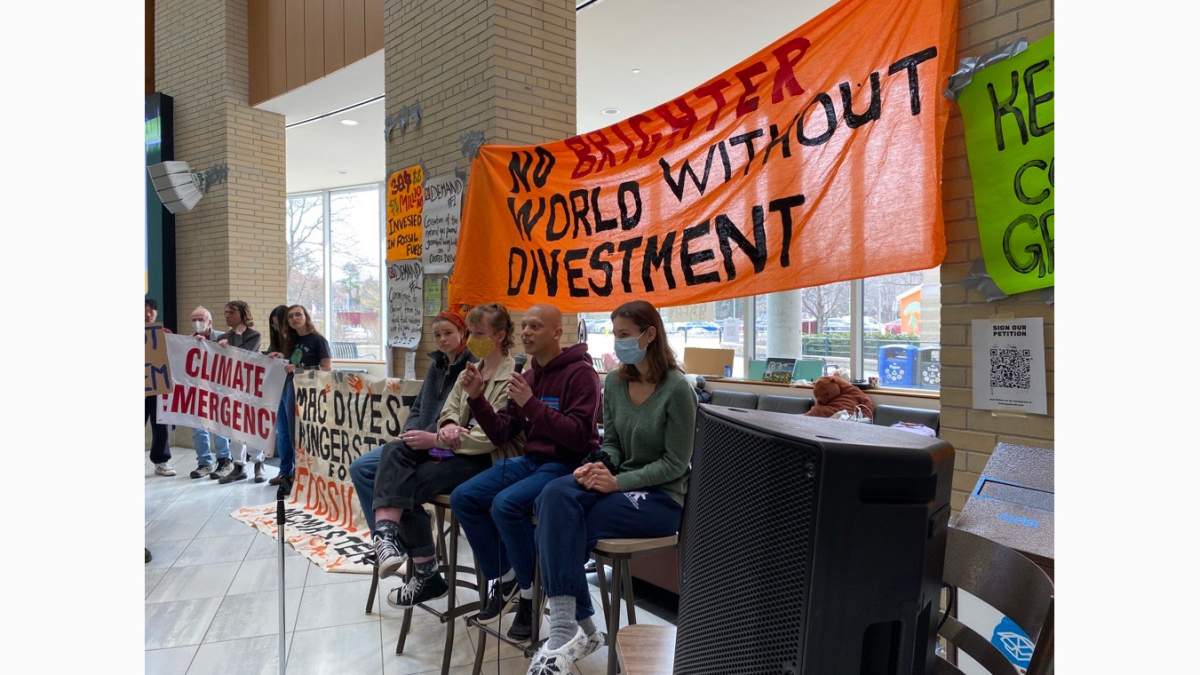A group of students on a hunger strike aimed at getting McMaster University to divest from fossil fuels is over after eight days.

In a release on Tuesday morning, the group cited “deteriorating effects on organs, muscle, cognitive abilities, and immune systems” as the primary reasons to discontinue the action.
The McMaster Divestment Project, also called MacDivest, says its campaign was in protest over new generators believed to increase the university’s carbon emissions by 415 tonnes for every 60 hours of operation.
The end of the demonstration comes not long after the university shared concerns over the students’ health and supported a decision to take on meals and other supplements to minimize risk.
Executives at McMaster reiterated in a statement they are “actively pursuing” ways to reduce the facility’s environmental footprint and are on track to cut total carbon emissions on campus by more than 40 per cent by the end of 2024.
Prior to the installation of the generators, McMaster executives said the project was necessary to pay for future clean energy initiatives via its Net Zero Carbon Roadmap, an initiative to reduce campus carbon emissions in a plan for reaching net zero carbon by 2050.
McMaster estimates the gas project will need at least 13 years to pay itself off, resulting in what MacDivest says will be 8,900 tonnes of carbon emissions (the equivalent of driving 22 million miles) during that period.
University spokesperson Michelle Donovan insisted the institution is committed to addressing climate change and shares the same objectives, but needs the generators as a stop-gap along the way to reach its targets.

Get breaking National news
“We share the same goal with MacDivest of a net-zero carbon campus and divesting from investments in fossil fuels, but we recognize we have different timelines and ideas of how to get there,” Donavan explained in an email.
Fossil fuel companies make up about 2.7 per cent of McMaster’s investment portfolio, with an estimated $30.4 million in fossil fuel holdings.
In Tuesday’s release, MacDivest said it will continue its campaign and is expected to enact future campaigns against the university’s connections to fossil fuels.
“During the strike, we were able to engage with many students, faculty, staff, and community members to mobilize the community to fight for climate justice,” the group said in a statement.












Comments
Want to discuss? Please read our Commenting Policy first.